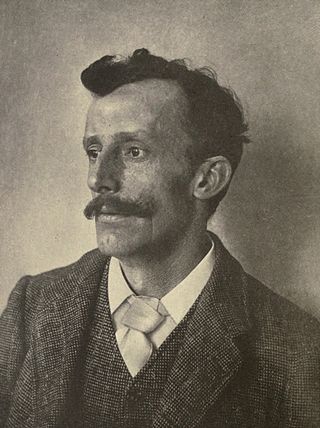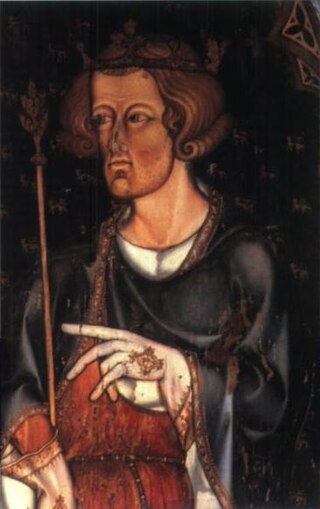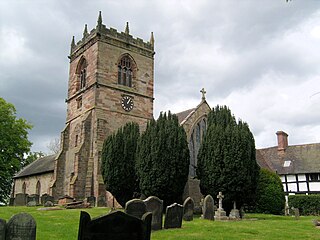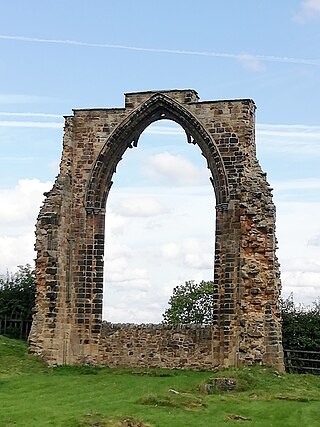Related Research Articles

Woodstock Palace was a royal residence in the English town of Woodstock, Oxfordshire.

Frederic William Maitland was an English historian and jurist who is regarded as the modern father of English legal history. From 1884 until his death in 1906, he was reader in English law, then Downing Professor of the Laws of England at the University of Cambridge.

Scutage was a medieval English tax levied on holders of a knight's fee under the feudal land tenure of knight-service. Under feudalism the king, through his vassals, provided land to knights for their support. The knights owed the king military service in return. The knights were allowed to "buy out" of the military service by paying scutage.

The Statutes of Mortmain were two enactments, in 1279 and 1290, passed in the reign of Edward I of England, aimed at preserving the kingdom's revenues by preventing land from passing into the possession of the Church. Possession of property by a corporation such as the Church was known as mortmain, literally "dead hand". In medieval England, feudal estates generated taxes for the King, principally on the grant or inheritance of the estate. If an estate became owned by a religious corporation which could never die, could never attain majority, and could never be attainted for treason, these taxes never became payable. It was akin to the estates being owned by the dead, hence the term.
The Charter of Liberties, also called the Coronation Charter, or Statutes of the Realm, was a written proclamation by Henry I of England, issued upon his accession to the throne in 1100. It sought to bind the King to certain laws regarding the treatment of nobles, church officials, and individuals. The nineteenth-century historians Frederick Maitland and Frederick Pollock considered it a landmark document in English legal history and a forerunner of Magna Carta.

Sir Frederick Pollock, 3rd Baronet PC, FBA was an English jurist best known for his History of English Law before the Time of Edward I, written with F.W. Maitland, and his lifelong correspondence with US Supreme Court Justice Oliver Wendell Holmes. He was a member of the Cambridge Apostles.

Henry of Bracton, also known as Henry de Bracton, Henricus Bracton, Henry Bratton, and Henry Bretton, was an English cleric and jurist.

Quia Emptores is a statute passed by the Parliament of England in 1290 during the reign of Edward I that prevented tenants from alienating their lands to others by subinfeudation, instead requiring all tenants who wished to alienate their land to do so by substitution. The statute, along with its companion statute Quo Warranto also passed in 1290, was intended to remedy land ownership disputes and consequent financial difficulties that had resulted from the decline of the traditional feudal system in England during the High Middle Ages. The name Quia Emptores derives from the first two words of the statute in its original mediaeval Latin, which can be translated as "because the buyers". Its long title is A Statute of our Lord The King, concerning the Selling and Buying of Land. It is also cited as the Statute of Westminster III, one of many English and British statutes with that title.

Under feudalism in France and England during the Middle Ages, tenure by serjeanty was a form of tenure in return for a specified duty other than standard knight-service.

The Year Books are the earliest law reports of England. This name for the later collections of these reports is of modern origin.
In English law, the assize of novel disseisin was an action to recover lands of which the plaintiff had been disseised, or dispossessed. It was one of the so-called "petty (possessory) assizes" established by Henry II in the wake of the Assize of Clarendon of 1166; and like the other two was only abolished in 1833.
Robert Passelewe was a medieval Bishop of Chichester elect as well as being a royal clerk and Archdeacon of Lewes.
Events from the 1250s in England.
The history of English land law can be traced back to Roman times. Throughout the Early Middle Ages, where England came under rule of post-Roman chieftains and Anglo-Saxon monarchs, land was the dominant source of personal wealth. English land law transformed further from the Anglo-Saxon days, particularly during the post-Norman Invasion feudal encastellation and the Industrial Revolution. As the political power of the landed aristocracy diminished and modern legislation increasingly made land a social form of wealth, subject to extensive social regulation such as for housing, national parks and agriculture.

The Tractatus de legibus et consuetudinibus regni Angliae, often called Glanvill, is the earliest treatise on English law. Attributed to Ranulf de Glanvill and dated 1187–1189, it was revolutionary in its systematic codification that defined legal process and introduced writs, innovations that have survived to the present day. It is considered a book of authority in English common law.

The Book of Fees is the colloquial title of a modern edition, transcript, rearrangement and enhancement of the medieval Liber Feodorum which is a listing of feudal landholdings or fief, compiled in about 1302, but from earlier records, for the use of the English Exchequer. Originally in two volumes of parchment, the Liber Feodorum is a collection of about 500 written brief notes made between 1198 and 1292 concerning fiefs held in capite or in-chief, that is to say directly from the Crown.

Lapley Priory was a priory in Staffordshire, England. Founded at the very end of the Anglo-Saxon period, it was an alien priory, a satellite house of the Benedictine Abbey of Saint-Remi or Saint-Rémy at Reims in Northern France. After great fluctuations in fortune, resulting from changing relations between the rulers of England and France, it was finally dissolved in 1415 and its assets transferred to the collegiate church at Tong, Shropshire.
The Assize of Arms of 1252, also called the Ordinance of 1252, was a proclamation of King Henry III of England concerning the enforcement of the Assize of Arms of 1181, and the appointment of constables to summon men to arms, quell breaches of the peace, and to deliver offenders to the sheriff. British historian, F.M. Powicke identified that it was actually issued on 12 May 1242, but was subsequently transcribed incorrectly.

Dale Abbey, also known as the Abbey of Stanley Park, was a religious house, close to Ilkeston in Derbyshire. Its ruins are located at the village of Dale Abbey, which is named after it. Its foundation legend portrays it as developing from a hermitage, probably in the early 12th century.

Dillegrout or dilligrout is a dish traditionally presented at the coronations of kings and queens of England by the holders of the manor of Addington in a kitchen serjeanty. It is generally thought to be a soup or stew made from almond milk, capon, sugar, and spices, but a porridge-like dish of other ingredients has been described. Dillegrout was first presented in 1068 at the coronation of Matilda of Flanders, wife of William the Conqueror, and its final presentation was at the coronation of George IV in 1821.
References
- ↑ Pollock and Maitland. The History of English Law Before the Time of Edward I, volume 1, p. 334.
- ↑ For inalienability, cf. Pollock and Maitland. The History of English Law Before the Time of Edward I, volume 1, p. 290.